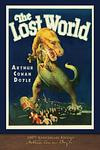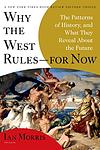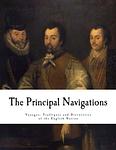The Greatest British "Geography" Books of All Time
Click to learn how this list is calculated.
This list represents a comprehensive and trusted collection of the greatest books. Developed through a specialized algorithm, it brings together 300 'best of' book lists to form a definitive guide to the world's most acclaimed books. For those interested in how these books are chosen, additional details can be found on the rankings page.
Genres
Geography is a category of books that focuses on the study of the earth's physical features, including its landforms, climate, and natural resources. It also explores the ways in which humans interact with and shape the environment, including topics such as population growth, urbanization, and globalization. Geography books may cover a wide range of subjects, from maps and cartography to cultural geography and environmental science. Overall, the category of Geography offers readers a comprehensive understanding of the world around them and the complex relationships between people and their surroundings.
Countries
Date Range
Reading Statistics
Click the button below to see how many of these books you've read!
Download
If you're interested in downloading this list as a CSV file for use in a spreadsheet application, you can easily do so by clicking the button below. Please note that to ensure a manageable file size and faster download, the CSV will include details for only the first 500 books.
Download-
1. Heart of Darkness by Joseph Conrad
This classic novel follows the journey of a seaman who travels up the Congo River into the African interior to meet a mysterious ivory trader. Throughout his journey, he encounters the harsh realities of imperialism, the brutal treatment of native Africans, and the depths of human cruelty and madness. The protagonist's journey into the 'heart of darkness' serves as both a physical exploration of the African continent and a metaphorical exploration into the depths of human nature.
-
2. The Lost World by Arthur Conan Doyle
"The Lost World" is an adventure novel that follows a group of explorers as they embark on a perilous journey to a remote plateau in South America, where prehistoric creatures still roam. Led by an eccentric professor, the team encounters dangerous dinosaurs, hostile tribes, and treacherous terrain, testing their courage and resilience. As they strive to survive and document their discoveries, the explorers face thrilling encounters and unexpected challenges that push them to their limits. This thrilling tale of exploration and survival is filled with suspense, action, and a sense of wonder as the characters navigate the mysteries of this lost world.
-
3. Non Stop by Brian W. Aldiss
In this gripping science fiction novel, a group of humans living on a generational spaceship called the "Non-Stop" embark on a dangerous journey through a mysterious and ever-changing environment. As they navigate the treacherous landscape, they encounter strange creatures and uncover shocking secrets about their own existence. Filled with suspense and thought-provoking themes, the book explores the human instinct for survival and the limits of knowledge in an unfamiliar world.
-
4. Travels in the Interior Districts of Africa by Mungo Park
"Travels in the Interior Districts of Africa" is a detailed account of the author's exploration into the heart of Africa at the end of the 18th century. The narrative provides an in-depth look at the geography, flora, fauna, and local cultures of the region at the time. The author, a Scottish explorer, recounts his journey along the Niger River, his encounters with different African tribes, his experiences of being captured and enslaved, and his eventual escape. The book offers a unique perspective on African society and the European perception of Africa during this period.
-
5. Why the West Rules - For Now: The Patterns of History, and What They Reveal About the Future by Ian Morris
This book is a comprehensive exploration of the historical and cultural patterns that have led to Western dominance in the world. The author uses a broad range of evidence from archaeology, genetics, and linguistics to trace the development of East and West from prehistoric times to the present, arguing that physical geography, rather than culture, religion, or great men, is the primary driving force behind the rise of the West. The book also offers a forecast for the future, predicting a shift in global power from the West to the East.
-
6. Gipsy Moth Circles the World by Francis Chichester
This book chronicles the author's solo sailing journey around the globe in his yacht, the Gipsy Moth IV. Battling harsh weather conditions, loneliness, and equipment failure, he successfully circumnavigates the world, starting and ending in England, and becoming the first person to do so by the clipper route, and the fastest circumnavigator, in nine months and one day overall. The book details his adventure and the challenges he faced, providing an intimate look at the world of sailing and exploration.
-
7. Journal of the Discovery of the Source of the Nile by John Hanning Speke
This book is a detailed account of an adventurous exploration to discover the source of the Nile River. The author, an English explorer, recounts his journey through Africa, detailing the various hardships, dangers, and cultural encounters experienced along the way. The narrative culminates in his discovery of Lake Victoria, which he claimed as the Nile's source. The book offers an intriguing look into 19th-century African exploration and the determination that led to one of the era's most significant geographical discoveries.
-
8. The Principal Navigations by Richard Hakluyt
"The Principal Navigations" is a comprehensive collection of English travel narratives from the 16th century, detailing a wide range of voyages and expeditions. The book includes accounts of journeys to the New World, Asia, and Africa, and features explorations by famous figures like Sir Francis Drake and Sir Walter Raleigh. The narratives provide a historical record of the era's discoveries, cultural encounters, and colonial endeavors, giving readers a unique insight into the period's maritime exploration and its impact on the world.
-
9. Earth: An Intimate History by Richard Fortey
This book provides a comprehensive understanding of the Earth's geological history. The author explores how the planet's diverse landscapes were formed over billions of years, examining various regions around the world from Hawaii to the Alps. The narrative intertwines scientific theories with engaging storytelling, making complex geological concepts accessible to a general audience. The book also emphasizes the impact of geological forces on human history and culture.
Reading Statistics
Click the button below to see how many of these books you've read!
Download
If you're interested in downloading this list as a CSV file for use in a spreadsheet application, you can easily do so by clicking the button below. Please note that to ensure a manageable file size and faster download, the CSV will include details for only the first 500 books.
Download







